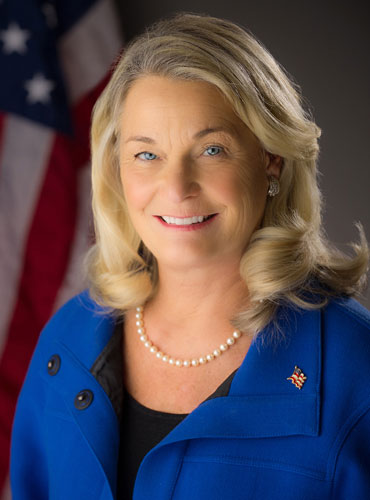Commissioner Buerkle Statement on the Provisional Approval of a Civil Penalty Settlement with Health Mor Industries
Recently the Commission voted on a settlement agreement for the payment of a civil penalty by Health Mor Industries (HMI). I voted to reject the agreement for two reasons.[1]
1. Penalty Amount
First, I consider the $725,000 penalty too high under the circumstances. I appreciate that the staff agreed to suspend a substantial portion of the penalty and to spread the remainder in equal monthly installments. In this case, however, there was no need for a penalty of this magnitude.
The staff concluded that HMI should have reported much earlier than it did (Settlement Agreement ¶ 6). In other recent cases, however, we have seen penalties well below $725,000, even for firms who (again by the staff’s reckoning) took significantly longer to report. See, e.g., Kolcraft Enterprises, Inc., 78 Fed. Reg. 14080 (March 4, 2013). The staff notes that HMI “implemented four separate design changes to alleviate the hazard” and distributed “product information notices . . . alerting users to the defect which the design change attempted to correct.” Settlement Agreement ¶ 7. The staff sees these actions as evidence that the firm knew it had a safety problem and therefore should have reported to CPSC. These actions also demonstrate that HMI wanted to address the product issue and help its customers, not to hide the problem. And again, we have seen lower penalties when similar actions were alleged. See, e.g., Kolcraft Enterprises, 78 Fed. Reg. at 14081.
Many of our penalty cases involve firms that only reported when CPSC became aware of the safety issue independently and asked the firm to submit a report. That did not happen here; HMI came to CPSC on its own and reported voluntarily before CPSC had knowledge of the issue. If HMI had not reported, CPSC might never have known of the problem. This is a very significant point. We should encourage companies to report, even if we think they should have done so earlier. We must not allow companies to think that it is ever too late to report voluntarily. Otherwise, we should expect that some companies will take their chances once they feel they have reached the point of no return. If getting unsafe products out of the market is our goal, then we must give credit for voluntary reporting even when it is late.
If HMI had reported to CPSC earlier, our staff experts might have helped HMI put a successful corrective action in place earlier. An earlier recall might have prevented many of the overheating problems that damaged carpets and caused minor injuries to a few consumers. HMI has already paid a price for its delay in the form of significant repair and warranty costs. We need not blind ourselves to this reality in determining the appropriate penalty amount.
2. Compliance Program
My second concern in this matter involves the requirement to “implement and maintain a compliance program designed to ensure compliance with the statutes and regulations enforced by the Commission . . ..” ¶ 26. Similar provisions have been included in every settlement agreement approved by the Commission since the Kolcraft agreement in February 2013.
The Kolcraft agreement, as originally negotiated by staff, contained no provision for a compliance program. Upon review of the agreement, Chairman Tenenbaum and Commissioner Adler directed the staff to go back and “incorporate into the settlement agreement certain specific provisions requiring the company to implement meaningful oversight and process changes into its manufacturing and reporting practices.” Joint Statement of Chairman Inez M. Tenenbaum and Commissioner Robert S. Adler on the Vote to Approve Provisionally a Civil Penalty Settlement with Kolcraft (March 12, 2013).In justifying this action, Chairman Tenenbaum and Commissioner Adler emphasized that Kolcraft “ha[d] conducted more than a dozen recalls” since 1989. In their view, a monetary penalty alone was not enough; “further action was warranted.” Id.
In subsequent penalty cases, Commissioners have continued to cite firms’ recall and penalty history as justification for including compliance programs in the settlement agreement. See, e.g., Statement of Commissioner Robert Adler on the Consumer Product Safety Commission’s Provisional Acceptance of a Settlement Agreement with Williams-Sonoma, Inc. (May 9, 2013)(company had undertaken eighteen voluntary recalls in the past five years); Statement of Chairman Inez M. Tenenbaum on the Commission Decision to Approve Provisionally a Civil Penalty Settlement with Ross Stores, Inc. (June 21, 2013)(“Ross is a repeat violator” and “neither the fine nor the supposed remedial measures Ross implemented . . . was sufficient”).
In this case, by contrast, there is no such history to point to. HMI is not a repeat offender. It has never paid any CPSC penalty before; it has not previously violated any CPSC statute or regulation. Indeed, before this case, HMI had never conducted a recall with CPSC.
Under these circumstances, requiring a compliance program as an element of the settlement agreement is unjustified. Here, unlike the cases noted above, there is no reason to believe that a monetary penalty will be insufficient to deter future violations. Nor should this Commission dictate the business practices of a company when it is not strictly necessary. Companies should have the flexibility to develop their own procedures for dealing with safety problems. What is the basis for CPSC to insist that HMI have “a mechanism for confidential reporting of compliance-related questions” or a five-year document retention policy? (see Settlement Agreement ¶ 26.) The agreement also lacks an expiration date. Does the Commission intend to enforce these requirements forever?
Conclusion
HMI has learned a hard lesson in this, its first encounter with CPSC. Going forward, there is no reason to assume that HMI will ignore its reporting obligation, much less violate other CPSC statutes and regulations. No compliance program was necessary in this agreement.
[1] My decision is based in part on materials provided to the Commission that are privileged or confidential. My explanation is therefore limited to information in the settlement agreement and other publicly available materials.


